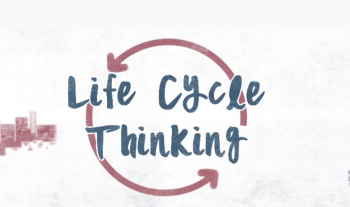Circular Economy approaches for the electronics sector in Nigeria
Nigeria has been undergoing rapid transformation on information and communication technology by importing new, second-hand or used electrical and electronic equipment. Ever growing amount of e-waste has been generated, and they are being collected and recycled by the informal sector in a primitive manner. This has caused loss of valuable resources, very negative impacts to the environment (air pollution, water and soil contaminations from the toxic and hazardous substances), as well as health conditions of the informal workers.
 The Nigerian government approved the National Environmental Regulations on the electronics sector in 2011. Many challenges exist, which limit the enforcement of the regulations, such as illegal trade of e-waste, presence of the informal sector, lack of state-of-the-art collection and recycling infrastructure, and insufficient financial schemes. The regulations have defined the principle of the Extended Producer Responsibility (EPR), but further actions are still needed to operationalise the EPR system.
The Nigerian government approved the National Environmental Regulations on the electronics sector in 2011. Many challenges exist, which limit the enforcement of the regulations, such as illegal trade of e-waste, presence of the informal sector, lack of state-of-the-art collection and recycling infrastructure, and insufficient financial schemes. The regulations have defined the principle of the Extended Producer Responsibility (EPR), but further actions are still needed to operationalise the EPR system.
At the same time, the food and beverage sector has made substantial progress to establish the Extended Producer Responsibility (EPR) system, for responsible recycling and create circularity of plastics bottles and packaging. This initiative was initially led by 5 companies (including Coca-Cola, Nestlé and 3 local companies), who covered the initial cost of setting up and operating the system. This is a good demonstration for the electronics sector.

The GEF project
Since June 2019, together with National Environmental Standards and Regulations Enforcement Agency of Nigeria, UN Environment Programme has been implementing the project ‘Circular Economy Approach for the Electronics Sector in Nigeria’, with 2 million USD of funding provided by the Global Environment Facility (GEF) and more than 13 million USD of co-financing provided by project partners.
The project brings together players from government, the private sector and civil society to kickstart a financially self-sustaining circular economy approach for electronics in Nigeria, protecting the environment while creating safe employment for thousands of Nigerians. The project supports the Nigerian government to identify the best approach to implement the EPR legislation. This project is regarded as the first demonstration project in the electronics sector under the Platform for Accelerating the Circular Economy (PACE).
Four components of the project
The project has the following four components:
Component 1 Implementation of EPR system (led by NESREA)
- Development of roadmap for the EPR implementation
- Development of the registration system regarding data sources, computation and management of information
- Estimation of levy for product categories
- Training of database owner/ maintainer
Component 2 Pilot of collection activities (led by NESREA)
- Identification of optimal collection system through pilot collecting 300 tons of e-waste through various channels
- Training of e-waste collectors on standards and best practices
Component 3 Pilot of recycling activities (led by NESREA)
- Assessment of recycling centres by recycling the 300 tons collected e-waste in certified recycling facilities in Nigeria
- Training of e-waste workers
Component 4 Circular Economy and global outreach (led by UNEP)
- Demonstration of best practices and success cases of upstream interventions to increase the circularity of the sector
- Training on eco-innovation and circular economy in Nigeria
- Organisation of high-level international event to engage with international stakeholders to implement circular economy in the electronics value chain
Critical elements of the project
This project will support the Nigerian government to develop a framework condition to implement circular economy, covering the policy aspect (target setting, scoping, defining financial and physical responsibilities of stakeholder, monitoring and evaluation), technical aspect (better assessment and improvement of the collection and recycling systems through pilot), financing mechanism (establish a funding system to cover the cost of environmentally sound treatment of e-waste), knowledge and communication. It creates opportunities for stakeholders along the value chain to collaborate systematically.
The most critical condition to kick off this project is that private sector will need to advance budget to set up a formal system to manage e-waste, and cover the administrative and operational costs. This means that the current Producer Responsibility Organisation (EPRON) needs to register sufficient number of producers for collecting the levy of EPR, in order to cover the operation cost of the system.
Under sufficient funding system, the recycling infrastructure in Nigeria can grow steadily with stable contracts for collection and recycling, funded by PRO. This will provide opportunities to develop innovative solutions towards circular economy, and create jobs and economic growth to the Nigeria society.
-
Introduction to Life Cycle Thinking
This is one of the Life Cycle Initiative E-learning modules, with courses in English, French, Arabic and Spanish Read More


